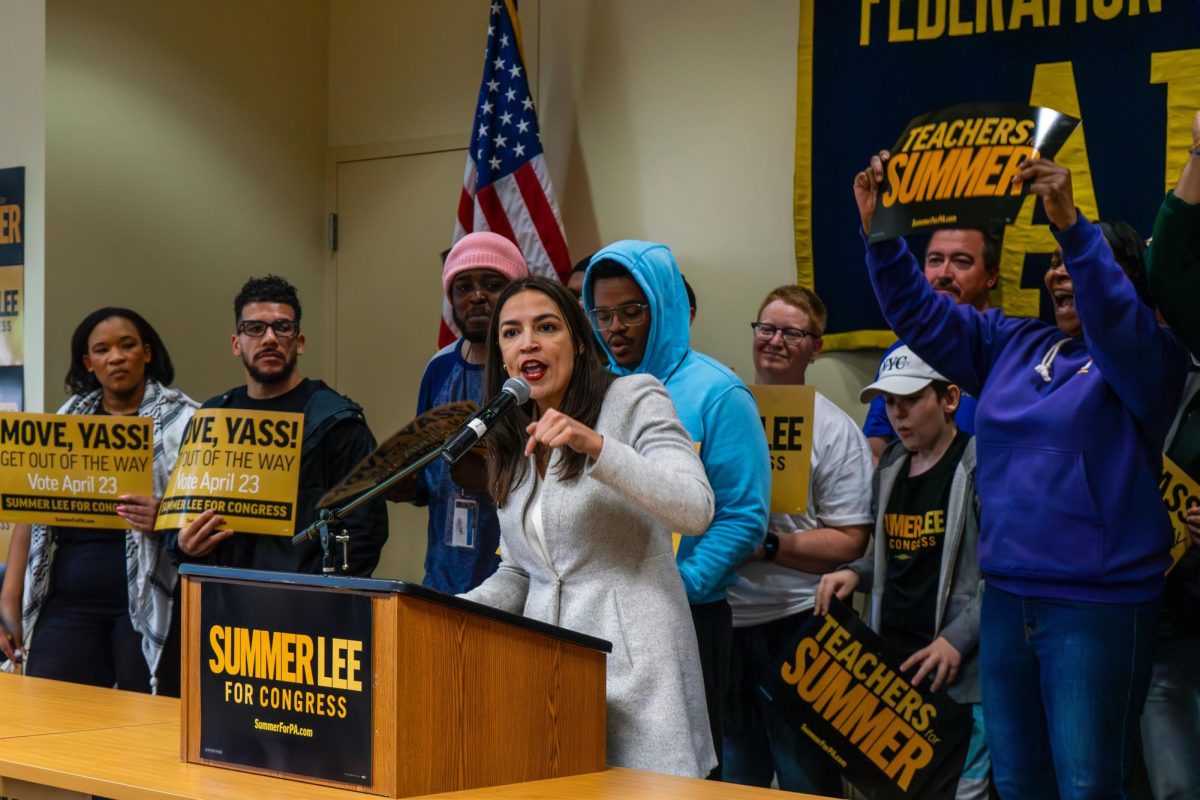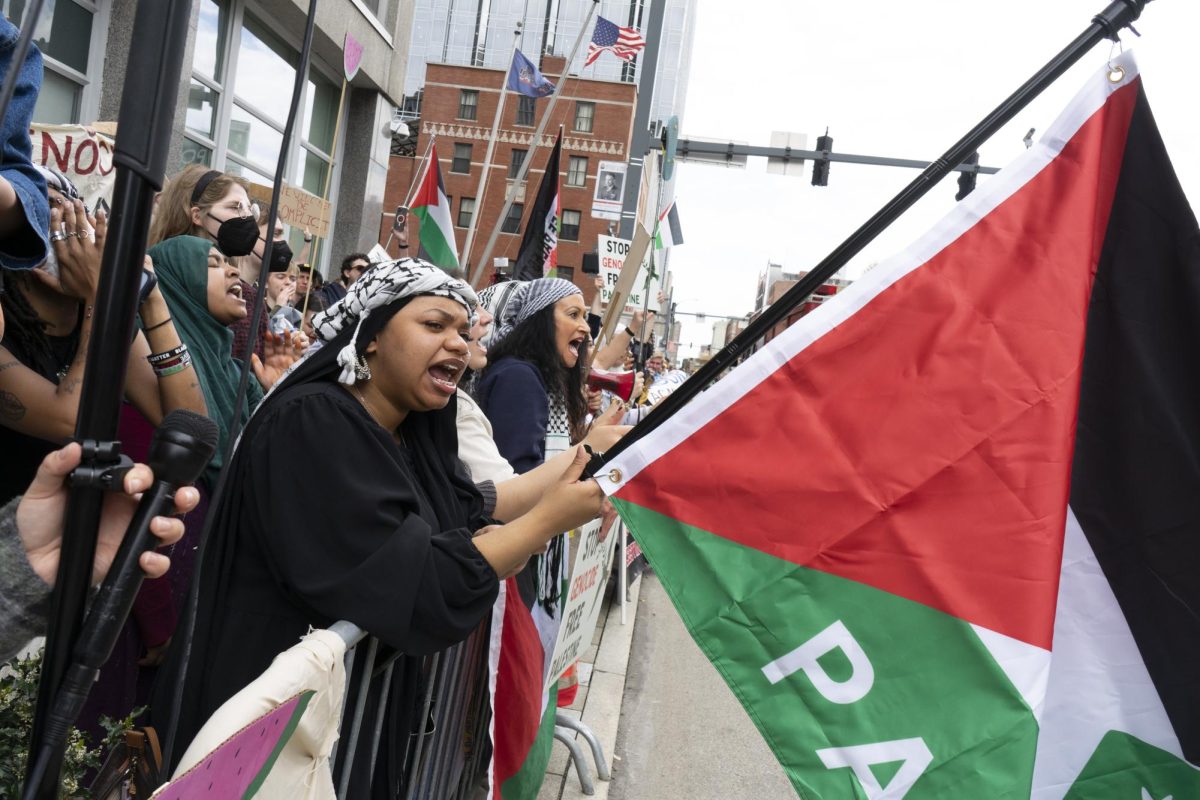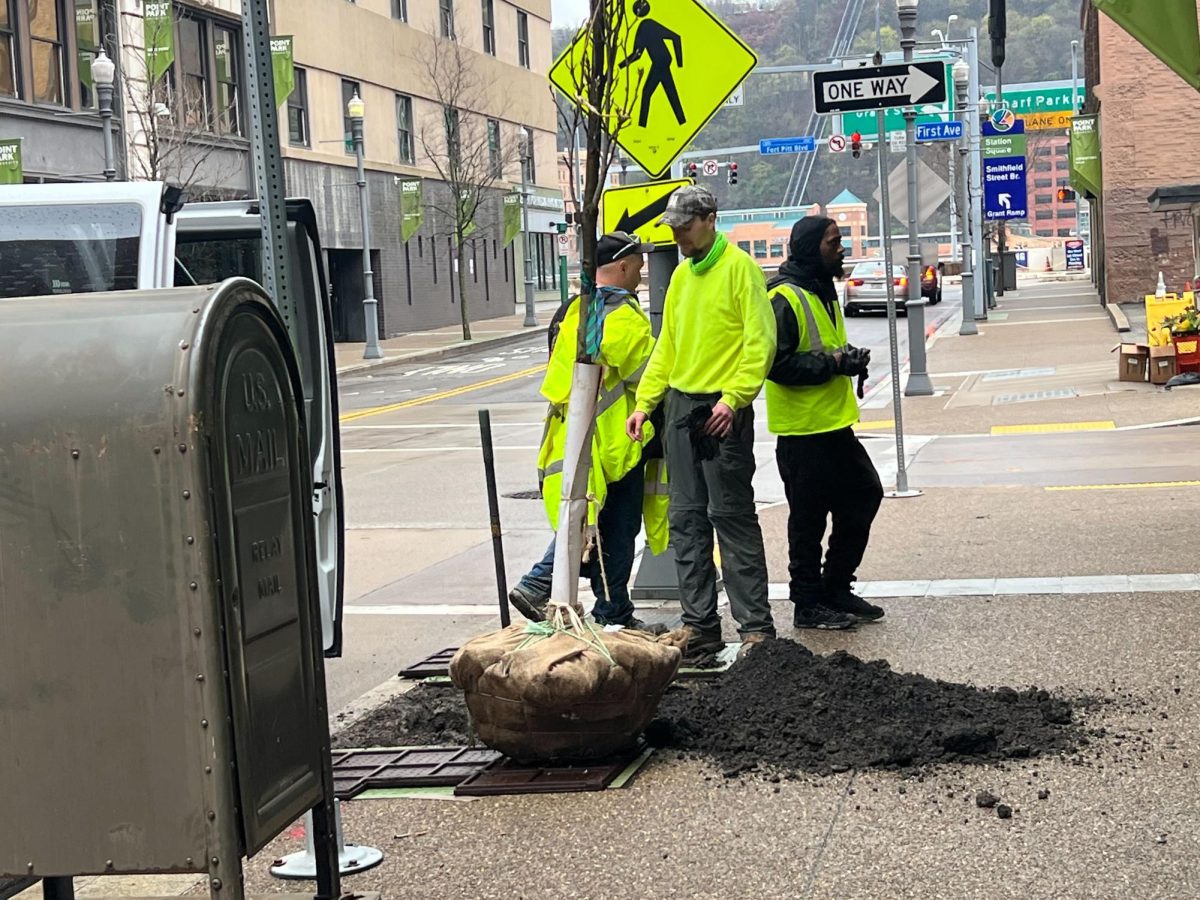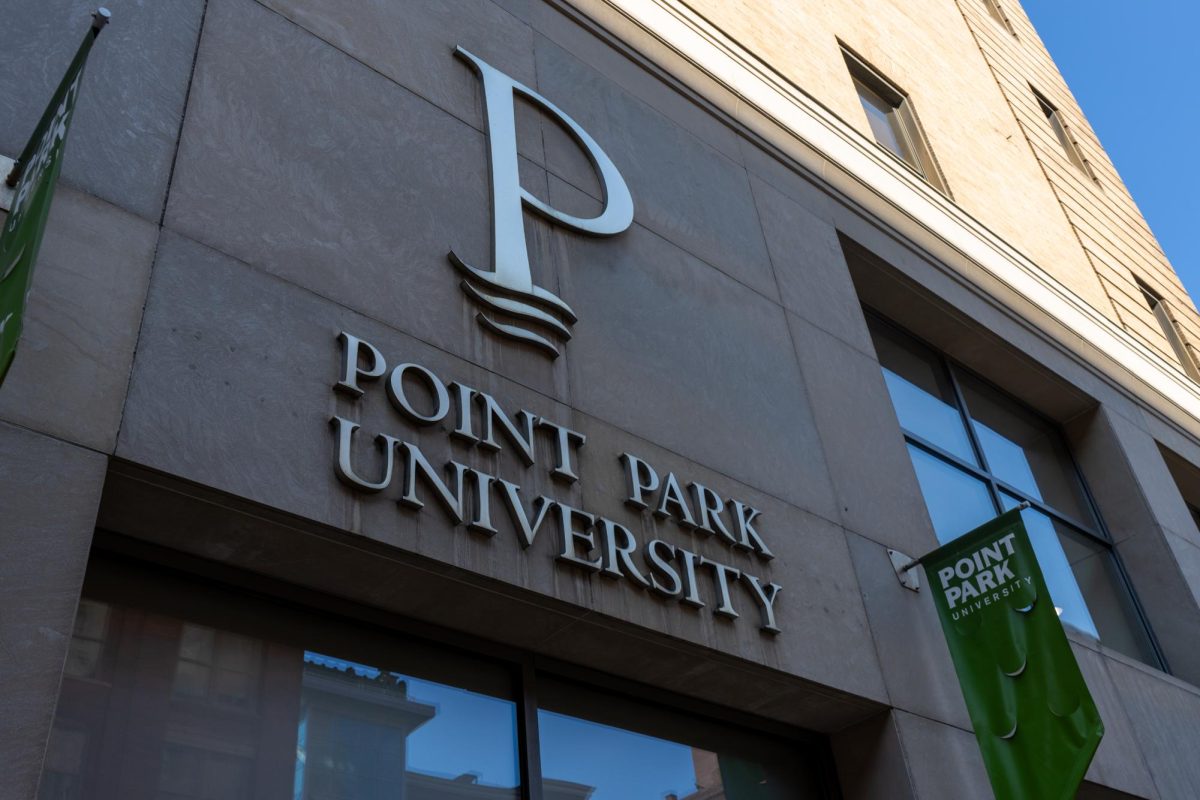
photo courtesy of Sean Martain
Students of the criminal justice and intelligence studies program participated in a training exercise at the McGarity Army Reserve Center in Coraopolis, PA.
When Point Park Humanities and Human Sciences professor Sean Martin volunteered his time and expertise last year to a local Army Reserve Company, he had no way of knowing that his desire to show his appreciation for the men and women dedicated to military service would turn into an out of classroom learning experience for his students.
Last week, Martin took a group of students that included undergraduates, military veterans and graduate student alum of the criminal justice and intelligence studies program to McGarity Army Reserve Center in Coraopolis, Pa. to participate in a training exercise with the 303rd Psychological Operations Company.
“Normally I just go out by myself,” Martin said. “But I’m always trying to find a way to get experience and resume material for my students.”
Martin began volunteering as a civilian instructor with the 303rd when one of his students, Ryan Vickers, a senior national security and intelligence major and active drilling member of the company, saw the value of the coursework for his fellow soldiers and introduced Martin to the company’s operations officer.
“The military is very big on training, while academia is very big on education; I think to be a master of anything you need both,” Vickers said in a phone interview. “I just thought it was a great opportunity to bring both together.”
As part of the Psychological Operations and Misinformation course that Martin developed and teaches for Point Park, students learn psychological aspects of communicating effectively to accomplish a variety of goals. In preparing for the exercise, students participated in the development of scenarios following guidelines set forth by Martin.
“We set up four scenarios involving humanitarian missions and the types of realistic situations that the soldiers might find themselves in when deployed; trying to foster cooperation between local populations and the army,” Martin said.
Some examples of the types of humanitarian scenarios that were developed and enacted with the soldiers included setting up vaccination stations, introducing clean water supplies where the water had been contaminated and cooperating with local leaders of whatever communities the soldiers may be deployed in order to foster goodwill.
The scenarios are devised to simulate potential obstacles that maybe posed by suspicion, or differing cultural perspectives that might make people resistant to help. Through role-playing, participants seek to find common ground.
The students took on the roles of the resistant populace and were positioned at various locations around the base. Soldiers came in groups and would take turns engaging them in conversations while contending with distractions such as loud music or entrusting the accuracy of an interpreter, explained Martin.
“One of the main objectives of our training was to get the soldiers to practice being open-minded, not to get frustrated, to be adaptable, to adjust to different perspectives and not be frustrated when they faced obstacles,” Martin said.
Students drew upon some of their own unique abilities while engaging in the roleplaying exercises with the soldiers.
“I was able to use some of my language abilities…a lot of the study I’ve done has been related to cultures in the Middle East and I was able to utilize that and utilize some of the vocabulary from Arabic that I know in order to make the training scenario more realistic for them,” said freshman Intelligence and National Security major, Josh, (who requested that his last name not appear in this article) in a phone interview.
After the Psychological Operations training exercise was completed, students participated in a feedback and question and answer dialogue session with the reservists. Soldiers who had already been overseas shared with the group some of the details of their experiences, and how their training in psychological operations was used in building relationships while deployed.
“Most people think that our military in Afghanistan is widely unpopular, but the people establish good relationships with them, a soldier was telling me how an Afghani family would have them over for dinner sometime,” Megan Potter, a sophomore Intelligence and National Security major, said. “We had the chance to meet amazing people; we established great connections while we were there.”
Between 40-50 Army Reserve soldiers participated in the training exercise that was split into two sessions, lasting four hours each. As a matter of routine, whenever a training exercise is completed the 303rd conducts an “after action review,” Operations Officer Captain Michael Schwille said in a phone interview. “Overwhelmingly the soldiers liked the interaction with the students…and said they wanted to work with the students again.”
According to Schwille, plans are being looked into to continue to expand opportunities and partnership between the 303rd and Point Park.
“Within the realm of things that are possible we definitely want to have the students out again,” Schwille said.











